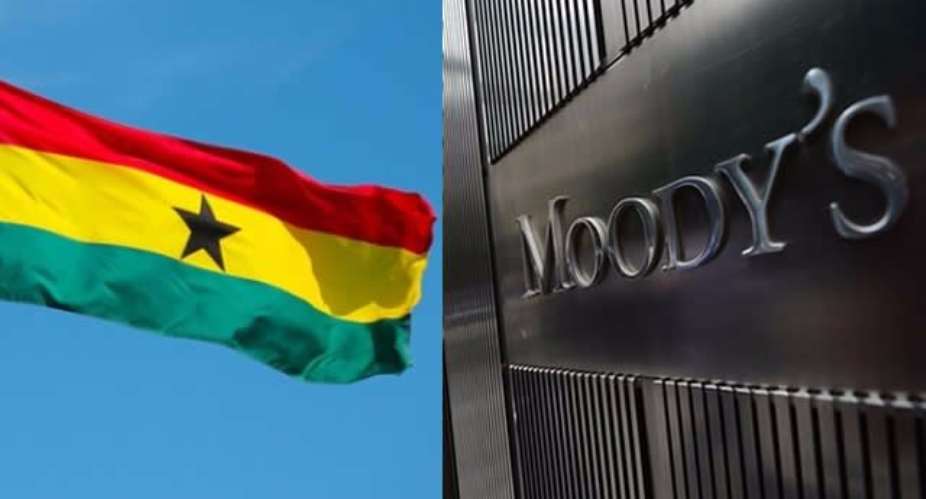Ratings Agency, Moody’s says Ghana’s banking sector consolidation trend is credit positive following the recent reforms by the Bank of Ghana (BoG).
According to Moody’s, the sector's consolidation is credit positive because it supports financial stability by removing weaker banks and gives remaining banks pricing power, enhancing their efficiency and profitability.
On 4 January, Bank of Ghana (BOG) published an update on banking sector reforms which revealed that the number of banks in the system declined to 23 at year-end 2018 from 34 in just one year after Ghanaian banks were required to have minimum nominal capitalization threshold of GHC400 million by year-end 2018.
Of the 34 banks at the beginning of 2018, five were consolidated into a single bank, six banks merged to create three larger banks, and four banks had their licences revoked, converted into a savings and loans license or exited Ghana.
Before the consolidation, Ghana’s proportion of commercial banks to its population was high, but this ratio has declined, although it remains relatively high compared with other Sub-Saharan African banking systems.
The consolidation has removed weaker, undercapitalized banks that posed a risk to financial stability. An example is Premium Bank, which had a capital adequacy ratio of negative 125% and had its license revoked. The consolidation has also led to higher capital for the system, improving banks’ capacity to absorb loan losses.
The remaining 23 banks have recapitalized their operations either organically or through capital injections and mergers.
“Partly because of the capital injections, the system's capital adequacy ratio increased to 20% in October 2018 from 17% in October 2016 and currently we expect it to be higher following completion of the recapitalization efforts and further liquidations. We expect surviving banks to be better capitalized, and therefore better positioned to resolve their high nonperforming loans (NPLs).”
The consolidation will also lead to better economies of scale for the remaining banks, which will likely result in better pricing power, particularly for deposits, which would help alleviate negative pressure on interest margins.
Competition for deposits intensified as weaker banks bid up interest yields offered to depositors to attract deposits. Consolidation will also improve banks’ ability to underwrite larger corporate loans because they will be able to increase their single-name borrower limits.
Consequently, banks’ franchises will improve, benefiting their business opportunities and profitability. Fewer banks will likely enhance regulators’ capacity to rigorously monitor and improve the sector's overall supervisory framework.
BOG has already started to tighten the regulatory framework by issuing a corporate governance directive that will enhance banks’ corporate governance practices.
The completion of the recapitalization exercise within the planned timeframe also shows BOG’s willingness to strictly enforce prudential regulations. Improved supervision quality and corporate governance will gradually boost confidence in the banking system.
Challenges
However, Ghanaian banks still face challenges and consolidation of the banking system does not guarantee strong future performance for all remaining banks.
Asset risks in Ghana remain high with NPLs at 20.1% as of October 2018. At the same time, interest rates are falling, with the monetary policy rate currently at 17%, the lowest policy rate since 2013, straining income from government securities for banks.
---JoyBusiness





 Dumsor: Don't rush to demand timetable; the problem may be temporary — Atik Moha...
Dumsor: Don't rush to demand timetable; the problem may be temporary — Atik Moha...
 Space X Starlink’s satellite broadband approved in Ghana — NCA
Space X Starlink’s satellite broadband approved in Ghana — NCA
 2024 election will be decided on the grounds of the economy; choice of running m...
2024 election will be decided on the grounds of the economy; choice of running m...
 Dumsor: We're demanding less; just give us a timetable — Kwesi Pratt to ECG
Dumsor: We're demanding less; just give us a timetable — Kwesi Pratt to ECG
 Do I have to apologise for doing my security work, I won’t – Simon Osei-Mensah r...
Do I have to apologise for doing my security work, I won’t – Simon Osei-Mensah r...
 All my businesses have collapsed under Akufo-Addo — NDC Central regional chair
All my businesses have collapsed under Akufo-Addo — NDC Central regional chair
 Military, Prison Officers clash in Bawku, three injured
Military, Prison Officers clash in Bawku, three injured
 GRA-SML contract: MFWA files RTI request demanding KPMG report
GRA-SML contract: MFWA files RTI request demanding KPMG report
 Court threatens to call second accused to testify if NDC's Ofosu Ampofo fails to...
Court threatens to call second accused to testify if NDC's Ofosu Ampofo fails to...
 Family accuses hospital of medical negligence, extortion in death of 17-year-old...
Family accuses hospital of medical negligence, extortion in death of 17-year-old...
